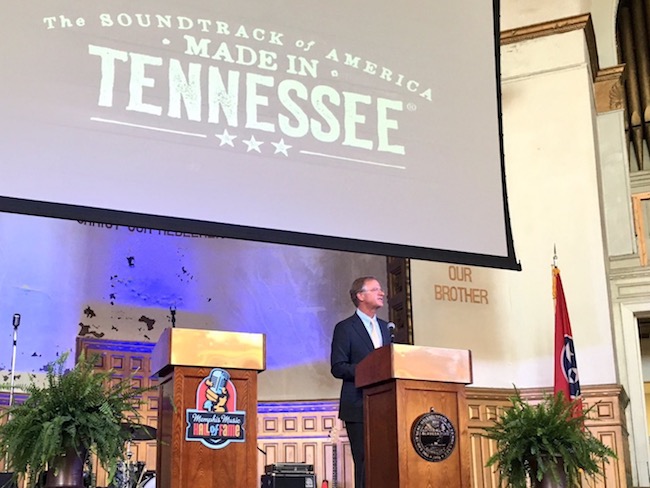
Cookeville-Putnam County tourism climbs in economic impact
COOKEVILLE – Tennessee Gov. Bill Haslam and Department of Tourist Development Commissioner Kevin Triplett announced this week Tennessee tourism’s direct domestic and international travel expenditures reached an all-time record high of $19.3 billion in 2016, up 4.7 percent over the previous year, as reported by the U.S. Travel Association. Putnam County’s contribution to that growth resulted in $123.06 million in tourism expenditures, an increase of nearly one million dollars over 2015 figures.
For the 11th consecutive year, tourism for the state topped $1 billion in state and local sales tax revenue, reaching $1.7 billion. That marks a 6.7 percent increase over 2015, higher than the national growth of travel related state tax revenues. Tourism generated 176,500 jobs for Tennesseans, a 3.3 percent growth year over year.
Putnam County saw a 1.3 percent increase in payroll with $23.02 million generated by tourism-related jobs. A 1.3 percent increase in local tax receipts and a 2.5 percent increase in state tax receipts were also reported, while employment numbers remained steady with more than 1,000 hospitality industry jobs.
“More people from around the world continue to visit Tennessee each year,” Haslam said. “The $1.7 billion in sales tax revenue and job growth are good news for everyone in Tennessee. The hard work of the tourism industry, led by the Department of Tourist Development and Tennessee Tourism Committee, continues to produce record results and dedication to boost Tennessee’s economy.”
Five counties exceeded one billion in travel expenditures including Davidson ($5.996 billion), Shelby ($3.335 billion), Sevier ($2.217 billion), Hamilton ($1.060 billion), and Knox ($1.056 billion). All 95 counties saw more than $1 million in direct travel expenditures in the economic impact of tourism and 19 counties saw more than $100 million.
“The economic impact growth of the tourism industry is a result of guests from around the world discovering everything that makes Tennessee ‘The Soundtrack of America,’” Commissioner Triplett said. “It starts with what we have; the music, history, culture and experiences. It is enhanced by how those things are managed. The authenticity and Southern hospitality from our communities and partners create an environment for our guests in a way not only that helps them enjoy their stay but motivates them to return. These numbers are a reflection of Tennessee becoming a destination of choice. But a critical component of this is they do not include the staggering capital investments being made by tourism partners across the state to enhance the experience.”
In another record previously announced during National Travel and Tourism Week, 110 million people visited the state in 2016, up 4.4 percent from 2015, as reported by D.K Shifflet & Associates. An increase in leisure travelers also led to a jump in overnight stays. Tennessee places among the Top 10 travel destinations in the U.S. for the third consecutive year and is considered a top retirement destination.
“We are excited to see this increase in visitor spending for Putnam County,” said Zach Ledbetter, vice president of visitor development, Cookeville-Putnam County Visitors’ Bureau. “We view these results as success in our increased marketing strategies which are focused on target drive and fly markets.”
“We have launched new branding initiatives as well as a new website VisitCookevilleTN.com, have increased social media and travel writer press tours efforts, and have a new visitor guide in production now,” added Ledbetter. “We feel our continued efforts to serve as the destination marketing organization for Cookeville-Putnam County are paying off and will continue to develop, providing visibility of our community not only to potential guests, but potential industry and retail partners, while also providing a large tax relief to local residents.”
The Cookeville-Putnam County Visitors’ Bureau is funded in majority by a portion of the Putnam County lodging tax, a tax paid by visitors’ and collected by local lodging partners such as hotels, bed & breakfasts, and participating Airbnb hosts. For 2016, the lodging tax provided to the visitors’ bureau for marketing efforts totaled $269,058.48, resulting in a significant return on investment.








